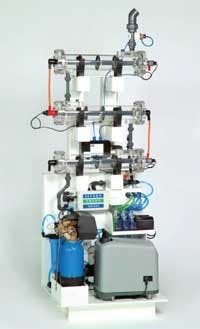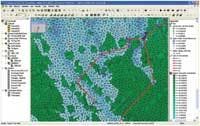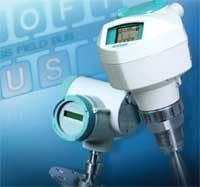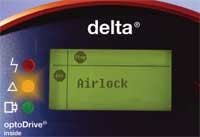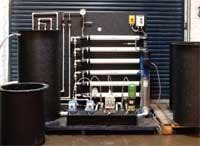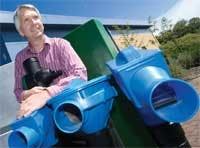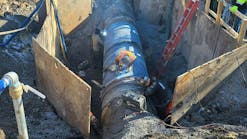Click here to enlarge imageIn response to increasing environmental concerns on effects of reverse osmosis (RO) treatment chemicals in waste from membrane systems, Avista Technologies recently developed a range of environmentally friendly and biodegradable products.
Mike Jefferies, Managing Director of Avista’s UK operation said the new antiscalant and cleaning solutions help membrane system operators meet environmental rules with the added benefit of improved overall membrane system efficiency.
“Membrane efficiency in RO systems can deteriorate quickly if membranes are not regularly cleaned or effectively protected against scaling effects by suitable antiscalants,” he explained. “This may result in shortened membrane life, plant downtime and increased power consumption.”
Vitec SR, the new antiscalant, improves both efficiency and environmental performance of RO membranes. To determine the best formulation, Avista chemists used extensive lab testing to evaluate membrane compatibility followed by extensive in–house pilot trials under realistic full deployment conditions using a pilot plant fitted with 12 test membranes to measure permeate flow and pressure differentials across the membrane surface. Results were verified on–site during an extended month’s trial, with all data normalised to account for temperature and pressure differentials. Jefferies said they confirmed that Vitec SR performed better than its predecessor and “the new formulation could prevent scaling on waste flows 20% more concentrated than expected under normal operation.”
Avista’s RoClean P111C cleaner has also been developed for use to improve overall efficiency on specialised membranes. The original formulation contained EDTA. After an industry standard 28 day biodegradation test only 4% was shown to have biodegraded. Having identified three non–toxic potential replacements meeting the degradation criteria, and whilst retaining effectiveness against common foulants, Avista chemists again carried out initial laboratory tests. The three were screened by tests on unused membranes to confirm compatibility. Next, batches of 12 membranes from an operational plant were tested using OSCAR (Avista’s Offsite Cleaning and Restoration system) to evaluate cleaning effectiveness of the formulations on fouled membranes. Two showed equal performance characteristics and were tested further to ensure selection of the best solution. Describing the results of the cleaning tests Jefferies said, “The most environmentally friendly option confirmed effective in site tests has now been in beneficial use for over a year.”
Avista Technologies (UK) Ltd.,
Edinburgh, Scotland
www.avistatech.co.uk
Enquiry No. 205
Welsh rainwater harvesting specialist grows

